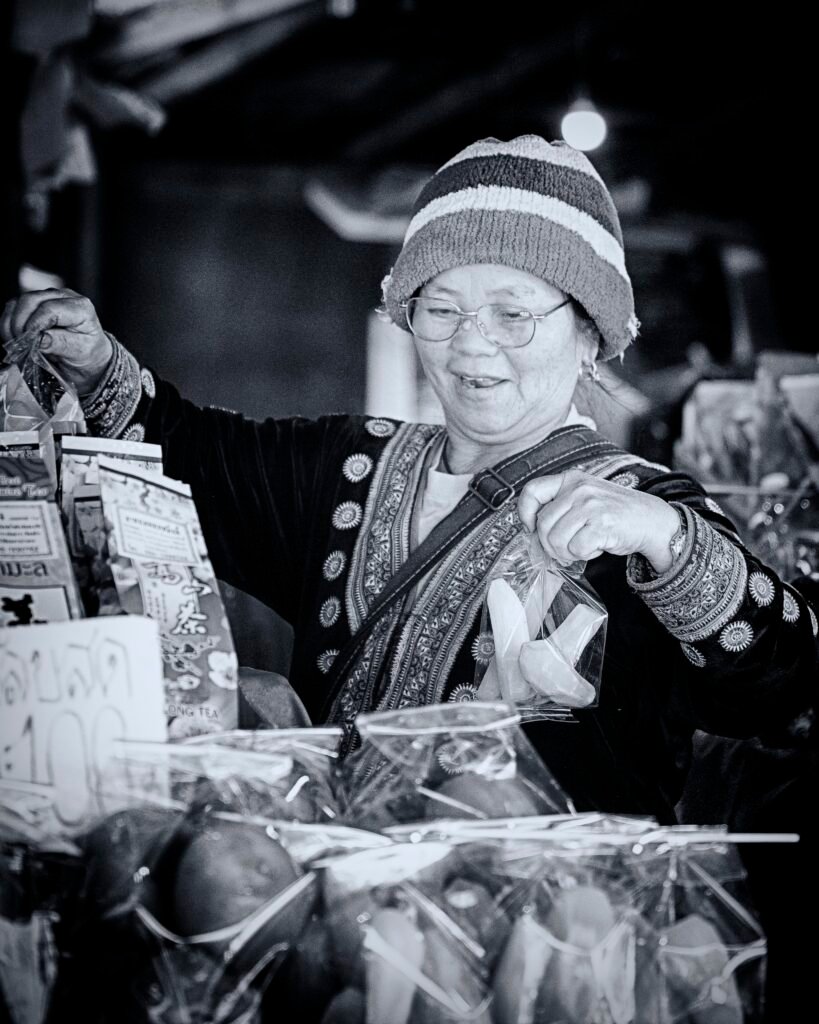
Every morning before the sky turns gold, she is there—sitting on a low stool beside the main road, beneath a makeshift tarp held up by fraying string and hope. The world knows her as Yai Muan—Grandmother Muan—the old woman who sells herbs, garlic, and hand-wrapped sticky rice at the edge of Chiang Mai’s daily rush.
She is nearly seventy-eight. Her back bends now, her knees ache when it rains, and her fingers have stiffened from decades of kneading dough and peeling ginger. But she still wakes at 4 a.m., lights incense for her ancestors, and makes her way down the hill with a woven basket full of the morning’s work.
Her stall is no bigger than a blanket stretched on concrete. On it are bundles of pak boong, knotted lemongrass, kaffir lime leaves, homemade nam prik in reused plastic jars, and tiny pyramids of banana-wrapped rice stuffed with black beans. All of it tied, rolled, and packed by hand. Her hands.
She doesn’t shout like the younger vendors. She doesn’t have glossy signs or English menus. Her customers already know. They come not for spectacle, but for the taste of something that hasn’t changed in forty years.
Young office workers bow gently as they buy lunch. Tuk-tuk drivers tease her in the local dialect, offering to trade jokes for chili paste. A foreign backpacker stops once, confused, and she simply nods, offers a smile with only a few remaining teeth, and places a mango in his hand. “Tam sabai.” Be well.
Sometimes she sells out before noon. Sometimes she doesn’t. On slow days, she hums old songs while sorting long beans, or fans herself with a piece of cardboard printed with a mobile plan from ten years ago.
She has lived through floods, through droughts, through coups, through currencies that rose and fell. She’s raised four children and buried two husbands. But here, on this patch of street shaded by faded tarps and the scent of basil, she remains—anchored, enduring.
She does not call herself resilient.
She just calls it Tuesday.
And when the sun begins to dip and the scooters scream louder, Yai Muan gathers her few remaining bundles, wraps them tight, and walks slowly home—past the tourists, the buses, the blinking neon signs—like a small, steady poem moving through a city that never stops.